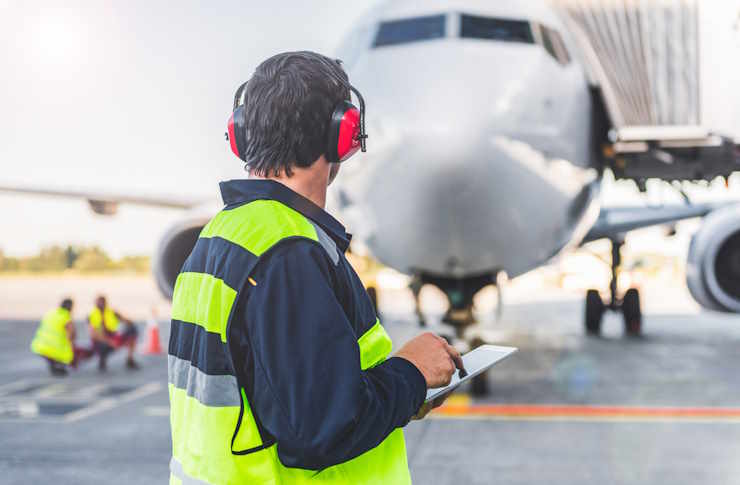Fancy a Career in Aviation? Start with a Sponsored Aviation Training Program
Aviation training opportunities may vary depending on region, background, and available support. Some programs could offer partial sponsorships or structured learning paths for individuals interested in industry entry. Exploring general information on aviation education may help clarify options without requiring immediate decisions or commitments. Training formats can include in-person or hybrid approaches, depending on availability and course level.

What are sponsored aviation training programs?
Sponsored aviation training programs are educational initiatives that may receive support from airlines, aviation companies, or other organizations. These programs typically combine theoretical instruction with practical training, aiming to prepare students for various roles in the aviation industry. It’s important to note that sponsored programs are not common and may have limited availability.
What types of aviation training are available?
Aviation training comes in many forms, depending on the specific career path an individual wishes to pursue. Some common types of training include:
-
Pilot training
-
Aircraft maintenance technician programs
-
Air traffic control courses
-
Flight dispatcher training
-
Aviation management studies
The duration and intensity of these programs can vary significantly, ranging from a few months to several years. Each type of training has its own set of requirements and potential career outcomes.
What are the entry requirements for aviation training programs?
Entry requirements for aviation training programs can differ based on the specific program, institution, and location. Some common factors that may be considered include:
-
Age restrictions (minimum and maximum age limits)
-
Educational background (high school diploma, bachelor’s degree, etc.)
-
Language proficiency (especially in English)
-
Physical fitness and medical requirements
-
Cognitive aptitude tests
It’s crucial for prospective students to carefully research the requirements for their chosen program and ensure they meet all necessary criteria before applying.
How do sponsored aviation training programs differ from traditional options?
Sponsored aviation training programs may offer certain advantages over traditional self-funded options:
-
Financial support: Some sponsored programs may provide partial or full funding for training costs.
-
Structured learning path: These programs often follow a curriculum designed in collaboration with industry partners.
-
Potential for industry connections: Students may have opportunities to network with professionals in the field.
-
Possible job placement assistance: Some programs may offer support in finding employment after completion, although this is not guaranteed.
However, it’s important to note that sponsored programs are often highly competitive and may come with specific commitments or obligations to the sponsoring organization.
What should you consider when exploring aviation training options?
When researching aviation training programs, consider the following factors:
-
Accreditation and recognition of the program
-
Quality of facilities and equipment
-
Instructor experience and qualifications
-
Job placement rates and industry connections
-
Total cost of training, including any hidden fees
-
Program duration and scheduling options
-
Location and living expenses (if applicable)
It’s advisable to speak with current students or graduates of the programs you’re interested in to gain firsthand insights into their experiences.
What are the potential costs associated with aviation training?
Aviation training can be a significant financial investment. Costs can vary widely depending on the type of program, location, and duration. Here’s a general overview of potential costs for different aviation training programs:
| Program Type | Estimated Cost Range | Duration |
|---|---|---|
| Private Pilot License | $10,000 - $20,000 | 3-6 months |
| Commercial Pilot License | $50,000 - $100,000 | 1-2 years |
| Aircraft Maintenance Technician | $20,000 - $50,000 | 18-24 months |
| Air Traffic Controller Training | $30,000 - $100,000 | 2-4 years |
| Aviation Management Degree | $40,000 - $200,000 | 3-4 years |
Prices, rates, or cost estimates mentioned in this article are based on the latest available information but may change over time. Independent research is advised before making financial decisions.
It’s important to note that these figures are rough estimates and can vary significantly depending on factors such as location, institution, and individual circumstances. Sponsored programs, where available, may offer reduced costs or financial assistance, but these opportunities are limited and highly competitive.
In conclusion, while aviation training programs can provide valuable skills and knowledge for those interested in aviation careers, it’s crucial to approach the process with realistic expectations. Sponsored programs, though potentially beneficial, are not widely available and do not guarantee employment. Prospective students should thoroughly research their options, consider the financial implications, and be prepared for a competitive and challenging journey into the aviation industry.




